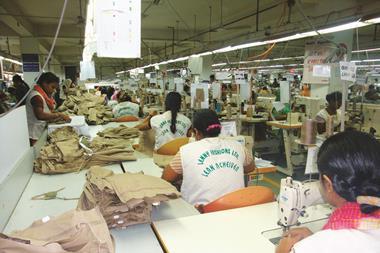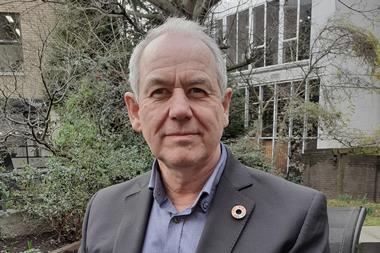Non-governmental organisations from around the world have called on international governments and fashion brands to do more to protect textile workers struggling with unsafe working conditions or lost jobs due to coronavirus.
A coalition of 10 representative bodies has called for “urgent action” to protect the “health and livelihoods of millions of garment workers and their families” faced with the prospect of unsafe working environments or losing their jobs as the coronavirus pandemic continues to ravage economies.
In a statement, signed by the Ethical Trading Initiative UK, the Partnership for Sustainable Textiles and others, the groups called on governments in textile-producing countries to “ensure on-time payment of salaries to workers who remain actively employed” and offer relief funds for those who have been laid off after fashion brands cancelled orders.
The groups have also called on factories that are still operating to implement safety measures to limit the spread of infection, to avoid cancelling planned orders and introduce “flexibility in factories to change delivery dates and or payment terms” for orders.
The statement also says the coronavirus pandemic could prove a chance to introduce “long-term systemic change” in apparel supply chains globally “creating a new normal of fair prices and collaborative relations between retailers, brands and suppliers, as well as social protection”.
Retailers around the world have bit hit hard by the international health emergency, which has seen brands forced to close stores and demand for apparel fall.
Some businesses, such as Asda, New Look and Arcadia, have cancelled orders or paid only a fraction of the full value in order to save money.
Other retailers, including department store chain Debenhams and fashion brand Cath Kidston, have been forced into administration due to the financial strain of the coronavirus lockdown.
As a result, many textile suppliers have laid off workers. Last week, thousands of clothing workers in Bangladesh demonstrated in the country’s capital to demand outstanding wages be paid and protest against terminations and layoffs.


























No comments yet